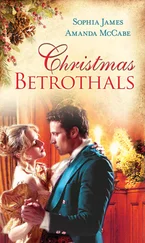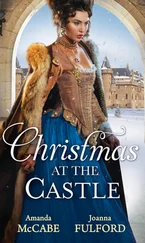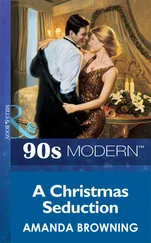I took up the loop of braided straw. It was exquisite, pale gold and intricately woven in coils and curlicues, with the faint scent of autumn still clinging to its intertwining strands.
“A corn dolly,” I said. “That’s what it’s called in the States, anyway. I think it has something to do with—” I fell silent as an interesting thought occurred to me.
“In this country,” Julian informed me, “it’s regarded as a fertility symbol. Or a love token.”
“It’s the same at home.” I held the loop up to catch the sunlight. What was a love token doing among Smitty’s scant possessions? Had Anne Preston presented her hired hand with a symbol of something more than simple friendship? “I wonder why Smitty left Blackthorne Farm,” I said. “Do you think he and Anne Preston were, uh—”
“Involved?” Julian said, with exaggerated emphasis. “We’ll soon find out.” He flashed a grin and pressed down on the accelerator.
The Cotswolds’ gently rolling hills gradually gave way to the Midlands’ broad, flat plains. Snow-covered fields stretched out to the horizon, sliced into vast, irregular tiles by windbreaks and hedges. The broad vistas were broken by an occasional copse of trees—survivors of the dense forests that had once blanketed the region—and thin trails of blue smoke rising from the chimneys of distant farmhouses. I noted a line of dark clouds building in the west but, remembering my promise to Julian, kept my fears about the weather to myself.
We were traveling the side roads now, and Saint Christopher was performing admirably, churning through windblown drifts without a skid or a hint of hesitation. Julian paused briefly in a lay-by, to compare a scribbled set of directions to the road map in the atlas, then drove on.
“We’re nearly there,” he said.
Famous last words, I thought, but ten minutes later we were cruising up a snow-packed drive lined with majestic blackthorn hedges.
Blackthorne Farm was a curious amalgam of the romantic and the utilitarian. The farmhouse was a charming Tudor jumble of tiled roofs, half-timbered walls, and mullioned windows, and the stables looked very much as they would have looked three hundred years before. The barn, on the other hand, was sheathed in corrugated iron and linked to two huge metal silos, and the machine shed was nothing more than an enormous fiberglass box.
There was a pleasing air of prosperity about the place. The outbuildings were well tended, the fences in good repair, and the stable yard was immaculate. Anne Preston, it seemed, had a knack for farming.
No sooner had Julian switched off the engine than the front door opened and a pair of frisky black-and-white border collies trotted out, followed by a fair-haired young man.
“Branwell! Charlotte!” he called, and the dogs came to heel at his side.
“Branwell?” I muttered. “Charlotte? I thought Bronte country was further north.”
“Bronte country is a state of mind,” Julian said sternly. “Now behave yourself. We’re here on serious business.” He took the canvas carryall from me and we both got out of the car. The stable yard’s earthy scent wafted through the crisp, cold air and I heard a horse’s whinny as we approached the house.
“Can I help you?” the young man inquired. He appeared to be in his mid-twenties, tall and sturdily built, with a bull neck and broad shoulders beneath a bulky fisherman’s sweater.
“We were hoping to speak with Anne Preston,” said Julian, stopping a few feet from the doorstep. “I understand she lives here.”
The young man smiled. “She’s Anne Somerville now,” he informed us proudly. “I’m Charles Somerville. We were married three weeks ago.”
“Congratulations,” Julian said heartily. “Is Mrs. Somerville in?”
It was clear that the novelty of hearing the words Mrs. Somerville had not yet worn off. Charles flushed with pleasure as he turned to shout over his shoulder, “Anne! Anne, you have visitors!”
A moment later, a petite, dark-haired woman came to the door. Her raven hair hung thick and straight to her jawline, framing a creamy complexion and a pair of arresting green eyes. She was stylishly dressed in well-cut twill trousers, square-toed leather boots, and a charcoal-gray cowl-neck sweater made of the softest angora.
“Mrs. Somerville?” Julian asked.
“Yes,” said the woman, in a pleasantly husky voice. “I’m Anne Somerville. Have you come about the rape?”
Julian blanched. “P-pardon?”
“The rapeseed,” said Anne Somerville. “I’m expecting a delivery of—” She broke off abruptly and gave a small gasp as she caught sight of the canvas carryall. “Kit…” she whispered, and without further warning fell, fainting, into her new husband’s strong arms.
7
Charles Somerville placed his wife gently on a low settee in the farmhouse’s front parlor. A wood fire crackled in the hearth, casting a flickering light on the oak-paneled walls and the jewel-hued Persian rugs layered over the carpeted floor.
The sharp tang of pine mingled with the mellow scent of wood smoke. A cut-glass decanter rested on a bed of evergreen boughs atop a Jacobean sideboard, and a Christmas tree stood between the two mullioned windows, bright with glittering ornaments, a host of tiny white lights, and a quivering waterfall of tinsel.
Branwell and Charlotte lay side by side on the hearth rug, their ears cocked forward, their eyes on their mistress’ face. Julian and I sat in a pair of velvet armchairs separated by a low walnut table, looking on helplessly.
“I’m so sorry,” Julian murmured, wringing his hands. “I’d no idea she’d react so strongly.”
“Why shouldn’t she?” Charles caressed his wife’s forehead. “Kit saved her life.”
“I’m not even sure we’re speaking of the same man.” Julian motioned toward the canvas carryall at his feet. “The bag belongs to a man who calls himself Smitty.”
“His name’s Kit Smith. He worked here for a time.” Charles looked over his shoulder at Julian. “Is he dead?”
“No,” said Julian.
“Do you hear, darling?” Charles turned back to his wife. “Kit’s all right.”
Anne’s eyelids fluttered. “Kit?” she said weakly.
“Kit’s fine,” said her husband.
Anne inhaled deeply and raised a hand to her temple. With her husband’s help, she swung her legs over the side of the settee and pulled herself into a sitting position.
“Brandy,” said Charles, and went to the sideboard to fill a glass from the gleaming decanter.
Anne pushed her dark hair back from her pale face and looked directly at Julian Bright. “Kit’s not fine, is he,” she said flatly.
Julian shook his head. “No, he’s not. He’s extremely ill.”
“I knew it,” said Anne. “When he didn’t come to the wedding—”
“Here, darling, drink this.” Charles sat beside his wife and put the glass of brandy in her hands.
She sipped the amber liquid, paused to catch her breath, then said, without preamble, “Tell me what happened to Kit.”
A tumult of emotions played across her face as Julian and I told our separate stories. Her green eyes blazed with anger, widened in alarm, and finally filled with tears, which she dashed away impatiently with the back of her hand. When we’d finished, she sat quite still, staring into the fire. Then she turned to me.
“Thank you for helping Kit,” she said. “I’m afraid I don’t know why he came to your cottage. He never mentioned Dimity Westwood while he was at Blackthorne Farm.”
Julian took the suede pouch from his pocket and spilled the glittering medals onto the walnut table. “Did he ever speak of these? He had them with him when he went to Lori’s cottage.”
Читать дальше








